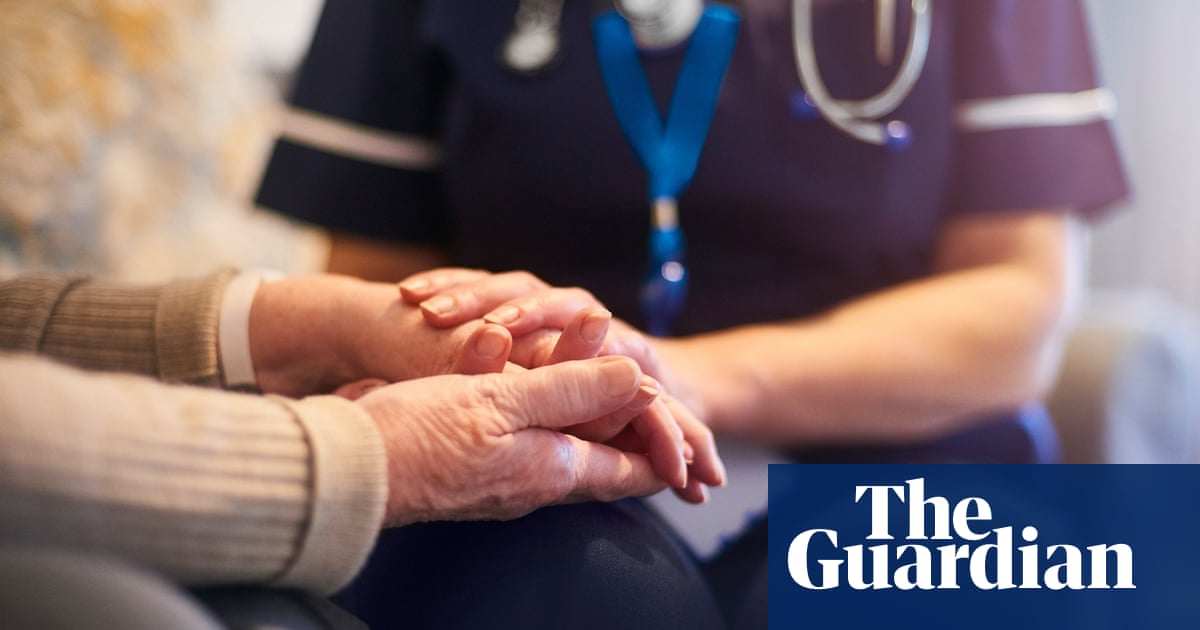
Polly Toynbee’s article on Kim Leadbeater’s assisted suicide bill has a familiar feel (The concerted attack on assisted dying won’t stop the public supporting this bill, 14 February), with its ad hominem attack on opponents and dismissive approach to their concerns. I am not religious, I don’t read the Tory press, I am not part of some opaque conspiracy and my opinions are not “sham indignation”. I feel genuine dismay at the manipulation and incompetence on show in parliamentary consideration of the bill.
My perspective comes from my background as a psychiatrist with expertise in the interaction between severe physical illness and mental health. Leadbeater’s committee initially refused to hear from the Royal College of Psychiatrists and backtracked in response to the resultant outcry, eventually inviting a representative of the college and two other psychiatrists (one of them me) who appeared as individual experts.
My session was interrupted by Leadbeater explaining to the committee that I and other witnesses didn’t understand the nature of suicide in life-limiting physical illness; the committee went on to ignore the advice of all three experts that the bill’s proposed medical assessment was inadequate.
The latest twist is Leadbeater’s proposal that a psychiatrist will be part of a panel that will review decisions made by two doctors whose assessment does not meet the standards recommended by her psychiatric witnesses. The rationale for this approach seems to be that the last months of life are so self-evidently not worthwhile that there is no need to ask about, or offer help with, possibly modifiable influences on the decision to seek assisted suicide. Therein lies the danger of the bill and the real reason for much opposition to it.
Allan House
Emeritus professor of liaison psychiatry, University of Leeds
Kim Leadbeater’s proposal for expert panels seems to make sense – depending on the expertise available (High court signoff in England and Wales assisted dying bill to be scrapped, 10 February). Coercion can be subtle and is widely misunderstood. I have always thought advocates for restorative justice approaches in domestic abuse cases fail to understand how coercion works – a word or a look that would not be picked up by an observer can have a powerful impact on a victim.
An expert panel is more likely to identify potential coercion than a single judge, but only if members are specially trained on coercion and disability equality, with input from voluntary sector women’s organisations such as Women’s Aid, plus ethnic-minority and disability organisations. Only then will they have a chance to identify how coercion may come into play.
Caroline Airs
Newcastle upon Tyne
Kim Leadbeater has reneged on her promise to include a mandatory high court review of applications for assisted dying. It was this promise that persuaded many doubting MPs to support her bill at its second reading. Her proposal for expert panels to oversee applications is illusory. Like the judiciary, psychiatrists, doctors and social workers are overwhelmed, and will be unable to undertake the time-consuming task of serving on panels. The MPs who originally supported the bill will have their opportunity to change their minds later this year. As John Maynard Keynes said: “When the facts change, I change my mind.”
Dr David Jeffrey
West Malvern, Worcestershire
Kim Leadbeater’s proposed amendment to the assisted dying bill has filled me and many others with grave concern. Leadbeater has described the bill as the “most robust piece of legislation on this issue in the world”. However, the removal of judicial oversight significantly weakens the safeguards, raising concerns about what other measures may be dropped through the legislative process or through the interpretation of clinicians.
While it will be essential to involve multidisciplinary teams if the law is changed, this need not have come at the expense of judicial oversight. While we do not yet know who will be appointed to the proposed expert panels, concerns have already been raised that there will inevitably be a self-selection bias to the voluntary assisted dying commission.
My background as a nurse and as a priest tells me that the best safeguard is the current law. I urge parliament to reject this bill. It is neither safe nor compassionate. Instead, we should be focusing on providing the best possible palliative care services. Dying people should be offered hope, not fear.
Sarah Mullally
Bishop of London and lead bishop for health and social care, Church of England












